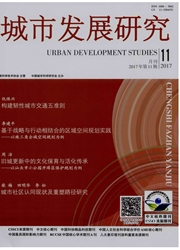

 中文摘要:
中文摘要:
通过对农民工家庭房价收入比的测算,揭示其城市住房购买力不足问题和存在的区域差异,探索提升其住房购买力的途径和政策建议。利用统计数据和实地调研数据的测算,揭示了我国部分省市农民工家庭房价收入比过高,城市住房负担过重的问题。通过对农民工家庭的收入构成成分的分析,发现农民工家庭的财产性收入占比过低,沉淀于宅基地和住房的财产基本未得到显化。结合浙江省德清市、湖南省浏阳市典型农村发展实践的调研数据,认为运用市场手段盘活宅基地及存量农房,能够显著提高农民工家庭的住房购买力。研究结论:农民工家庭房价收入比普遍过高且存在地域差异,过高的房价收入比与农民工家庭较低的财产性收入相关,显化农村宅基地和农房财产,利于实现城乡土地“同地、同权、同价”,也有助于实现农民的财产权。提高其城市住房购买力。
 英文摘要:
英文摘要:
Through the calculation of the house price-income ratios of migrant workers' families, this paper reveals migrant workers ' families' insufficient capacity of housing purchasing power and the regional differences, and explores the ways and policy recommendations to enhance the potential of the housing purchasing power. It mainly adopts the methods of theoretical analysis and empirical analysis. It uses statistical and survey data for simple calculation and reveals that migrant workers 'families' house price- income ratios are too high and are suffering from a heavy housing burden in the majority of provinces and cities in China. Analyzing migrant workers 'families' total incomes and their compositions, found that most migrant workers 'families' property rights precipitating in residential land and housing assets have not been manifest. Combination with the investigation and analysis of typical rural areas' development in Deqing city,Zhejiang Province and Liuyang city, Hunan Province, we found that the use of market means to manifest residential land and housing stock can significantly improve the migrant workers 'families' housing purchasing power. Conclusions: migrant workers 'families' house price-income ratios have regional differences, manifesting the rural homestead and rural housing assets, will help realize urban and rural identical land with identical price and rights, and enhance their property rights and housing purchasing power.
 同期刊论文项目
同期刊论文项目
 同项目期刊论文
同项目期刊论文
 期刊信息
期刊信息
